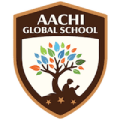Aachi Global School – Best CBSE & IGCSE Cambridge Curriculum Schools in Chennai
At Aachi Global School, we believe in empowering students through immersive, future-focused learning. As one of the top CBSE and Cambridge curriculum schools in Chennai, we blend the strength of the CBSE curriculum with the global outlook of the IGCSE curriculum. We are committed to academic excellence and personal growth, making us a leading school offering both national and international school curriculum. With experienced educators, modern infrastructure, and a supportive environment, we stand out as a trusted choice for holistic education.
Academic Boards We Offer at AGS: CBSE Curriculum & Cambridge Curriculum
At Aachi Global School (AGS), we are committed to shaping confident, capable learners through world-class education. That’s why we offer both the CBSE and Cambridge International Curriculum - two globally respected boards that align with our vision for student success. The objectives of CBSE curriculum help us focus on academic strength, life skills, and all-around development. Through the Cambridge pathway, we empower students with global exposure, independent thinking, and creativity. With this dual advantage, your child receives a balanced, future-ready education.
Objectives
| CBSE Curriculum | CIE Curriculum |
| Foster holistic development in students. | Deliver internationally acclaimed CIE education |
| Promote integrity and social responsibility. | Cultivate critical thinking, creativity, and problem-solving skills. |
| Emphasises learner-centric approaches & project-based learning | Equip students for success in diverse global environments. |
| Experiential activities to understand concepts. | Nurture leadership, adaptability, and compassion. |
| Integration of technology into real-life applicantions. | Tailored teaching approaches to individual students. |
FAQs
What Is Meant by School Curriculum?
What Is Cambridge Curriculum?
What Is the Approach of CBSE Curriculum?
What Is the Cambridge Method of Teaching?
What Are the Best CBSE and Cambridge Curriculum Schools in Chennai?
CBSE Curriculum
CBSE Primary Curriculum
CBSE curriculum for primary (1 to 5) at AGS provides a strong foundational education, nurturing young learners with a focus on holistic development and core academic skills.
CBSE Middle School
In Middle School 6 to 8, AGS offers a comprehensive curriculum that fosters critical thinking, creativity, and social responsibility, preparing students for the transition to secondary education.
CBSE Secondary
AGS Secondary 9 and 10 program focuses on academic rigour and personal growth, guiding students towards success in CBSE board examinations while fostering lifelong learning skills.
CBSE Higher Secondary
At AGS Higher Secondary 11 and 12, students engage in specialised coursework and intensive preparation for CBSE board exams, equipping them for higher education and future career pursuits.
Subjects Covered Under CBSE
| S.NO | Standards | Subjects |
| 1 | Classes (Ⅰ to Ⅴ) | English, Hindi, Tamil, Mathematics, EVS (1&2), Science (3 to 5), Social Studies (3 to 5), Computer Science, Work Experience, Physical & Health Education, Sports, Art Education, Robotics, Music and Dance. |
| 2 | Classes (Ⅵ to Ⅷ) | English, Hindi, Tamil, Mathematics, Science, Social Studies, Computer Science, Work Experience, Physical & Health Education, Sports, Art Education, Robotics, Music and Dance. |
| 3 | Classes (Ⅸ and Ⅹ) | English, Hindi / Tamil / French, Mathematics, Science, Social Studies, Information Technology (Class 10- Optional), Work Experience, Physical & Health Education, Sports and Art Education. |
| 4 | Classes (Ⅹ to ⅩⅠⅠ) SCIENCE STREAM (Non- Medical) | English, Mathematics, Physics, Chemistry / Economics, Computer Science / Economics / Physical Education. |
| 5 | Classes (Ⅹto ⅩⅠⅠ) SCIENCE STREAM (Medical) | English, Mathematics / Painting / Bio-Tech / Psychology / PE, Physics, Chemistry, Biology. |
| 6 | Classes(Ⅹ to ⅩⅠⅠ) COMMERCE STREAM (With Mathematics) | English, Mathematics, Business Studies, Accountancy and Economics. |
| 7 | Classes(Ⅹ to ⅩⅠⅠ) COMMERCE STREAM (Without Mathematics) | English, Commerce / PE / Legal Studies, Psychology, Business Studies, Accountancy and Economics. |
| 8 | Classes(Ⅹ to ⅩⅠⅠ) HUMANITIES STREAM | English, Mathematics, Biology / Psychology / PE, Computer Science, Economics, Geography, History, Hindi, Political Science, Sociology, Legal Studies. |
IGCSE Curriculum
Cambridge Early Years Programme
Cambridge Primary Curriculum
Cambridge Lower Secondary Curriculum
Cambridge IGCSE Curriculum
Cambridge International AS & A Levels
Subjects Covered Under IGCSE
| S.NO | Programmes | Grades | Subjects |
| 1 | Cambridge Primary | (Ⅰ to Ⅴ) | English (0058), Math (0096), Art (0067), Combined Science (Physics, Chemistry, Biology) (0097), Second Language – Tamil (Compulsory), Global Perspective (0838), Digital Learning (0072), Music (0068), Other Language (Hindi / French), Physical Education (0081). |
| 2 | Cambridge Lower Secondary | (Ⅵ to Ⅷ) | English (0861), Math (0862), Combined Science (Physics, Chemistry, Biology) (0093), Second Language (Tamil / Hindi / French), Global Perspective (1129), Digital Learning (0082), Music (0078), Physical Education (0081) |
| 3 | Cambridge IGCSE (Group 1) | (Ⅸ to Ⅹ) | English, Tamil, Hindi, French, Physics, Chemistry, Biology, International Maths, Maths, Information and Communication Technology. |
| 4 | Cambridge IGCSE (Group 2) | (Ⅸ to Ⅹ) | English, Tamil, Hindi, French, Physics, Chemistry, Maths / International Maths, Environmental Management, Information and Communication Technology. |
| 5 | (Cambridge IGCSE (Group 3) | (Ⅸ to Ⅹ) | English, Tamil, Hindi, French, Business Studies, Accounts, International Maths, Art & Design, Information and Communication Technology. |
| 6 | Cambridge IGCSE (Group 4) | (Ⅸ to Ⅹ) | English, Tamil, Hindi, French, Business Studies, Accounts, International Maths, Maths, Art & Design, Information and Communication Technology. |
| 7 | Cambridge International As and A Levels | (ⅩⅠ to ⅩⅠⅠ) | Choice of Subjects can be taken based on Career Counselling. |


